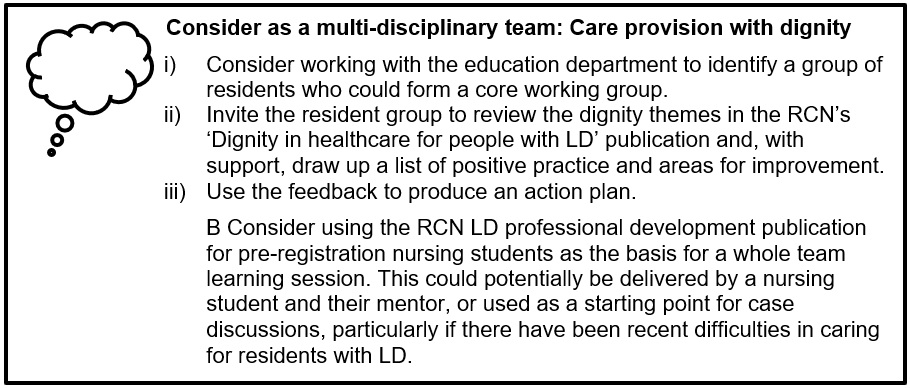Resources for Secure Environments
Providing healthcare in secure environments such as prisons, secure hospitals, young offender institutions and immigration removal centres presents unique challenges for GPs and primary care professional.
Learning and Intellectual Disabilities in Secure Environments
Introductory resources
NHS England: Beyond the High Fence. From the unheard voices of people with a learning disability, autism or both.
NHS England published a document in early 2019 called ‘Beyond the High Fence’. It was co-produced with people with a learning disability or autism with lived experience of being in prison or in a secure hospital setting. Problems identified with being in prison included: a lack of nurses with expertise in learning disabilities (LD) and autism, a lack of prison staff understanding of LD and autism, excessively strict rules and frequent restraints, a lack of emotional support, bullying by other prisoners and the experience of prison resulting in a detrimental impact on mental health. Although experience of secure hospitals was overall better than being in prison, problems associated with hospitals included: poor handover from prison, over-medication with psychotropic drugs, being locked up for years longer than would have been the case in prison, institutionalisation and loss of confidence about independence, delays between parole board hearings and mental health tribunals.
Neisha Betts, Project Manager, Health & Justice, NHS England & NHS Improvement and Ann Norman RCN Criminal Justice nursing adviser at the Royal College of Nursing & learning disability nursing UK were approached by the RCGP Spotlight Project team for their expert advice on learning disabilities in the secure environment. A comprehensive toolkit produced by HMPPS: Making services work for people with learning disabilities and challenges (LDC), a toolkit for prisons and probation staff is available. There are opportunities for ‘lunchtime learning’ and multi-disciplinary team discussion with the aim of raising awareness and standards of care for people with LD in secure environments.
Department of Health and Social Care. Betts, N. Positive Practice, Positive Outcomes, A handbook for Professionals in Criminal Justice System working with Offenders with Learning Disabilities, 2011 Edition.
This publication has concise chapters explaining learning disabilities (LD) definitions, LD and the Criminal Justice System, health and social care needs of people with LD, legislation and the key principles of effective communication. The role and importance of Community LD Teams, Criminal Justice Liaison and Diversion Teams, LD partnership boards, third sector peer advocacy groups and professional advocacy schemes are introduced. There are separate chapters addressing specific issues in police custody, courts, prison and probation services and mention of PSO/PSI relevant to people with LD. There are helpful case studies, Positive Practice examples and a section with Practical Actions in each chapter. There is also a useful list of additional resources at the end of the publication.
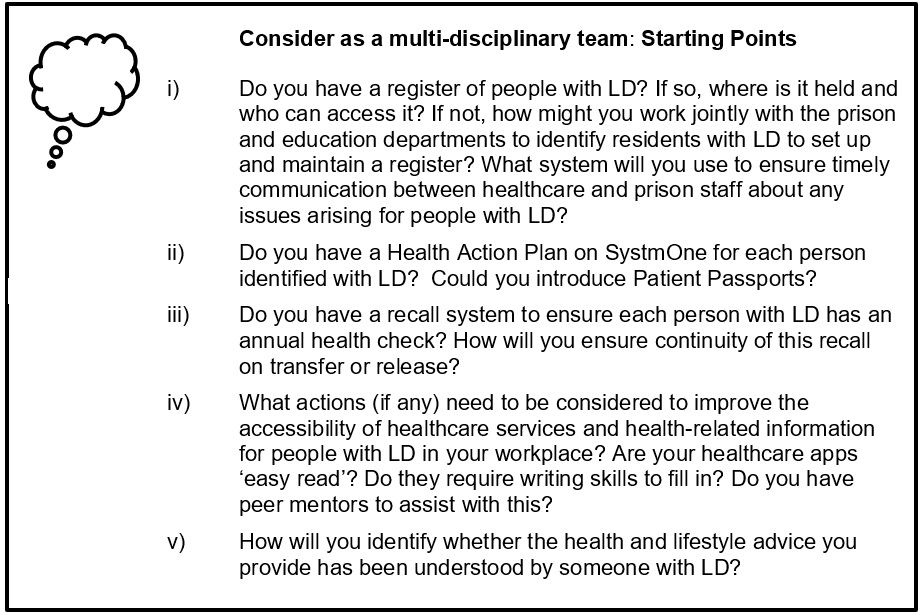
NHS England. Betts, N. Equal Access, Equal Care. Guidance for Prison Healthcare Staff treating Patients with Learning Disabilities (2015)
This publication identifies a range of important issues relating to caring for people in prison with LD. It covers the definition of LD, considerations around capacity, common health conditions, social care provision and benefits of specialist LD nurses. Sections 10-13 cover recommendations for healthcare staff relating to assessments and health action planning, reasonable adjustments, communication, care pathways, transitions and partnership working. There are links to useful resources and appendices covering communication tips and a checklist for ‘Gold Standard’ provision.
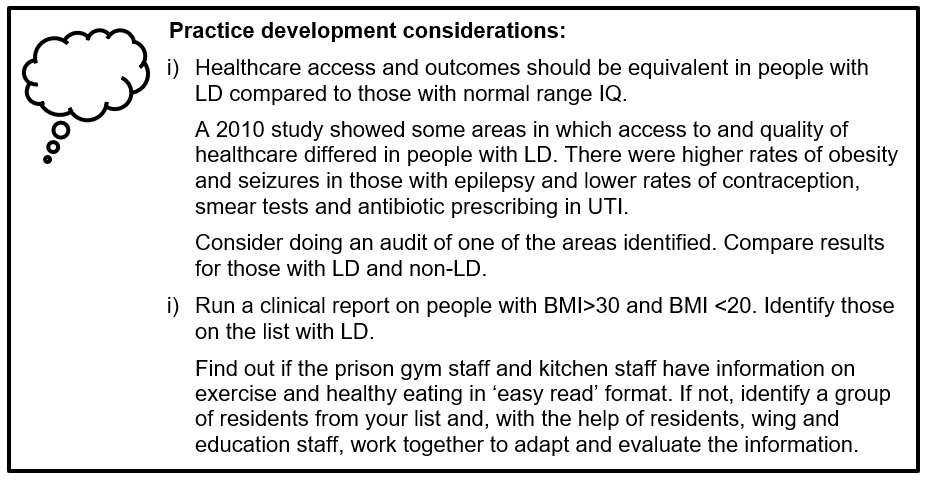
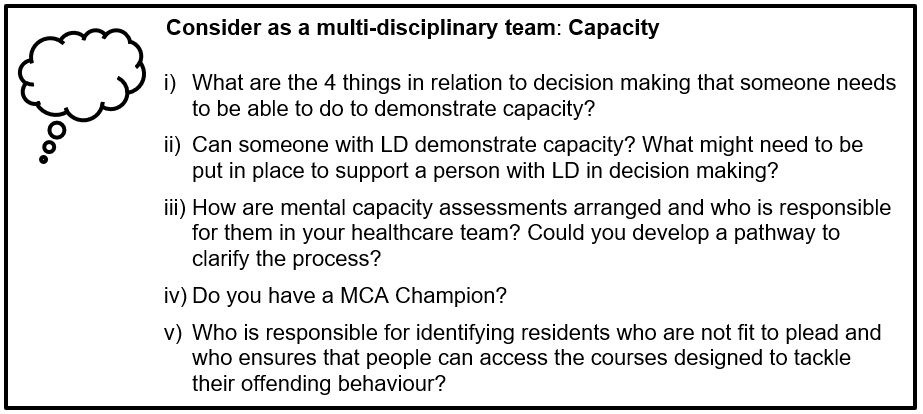
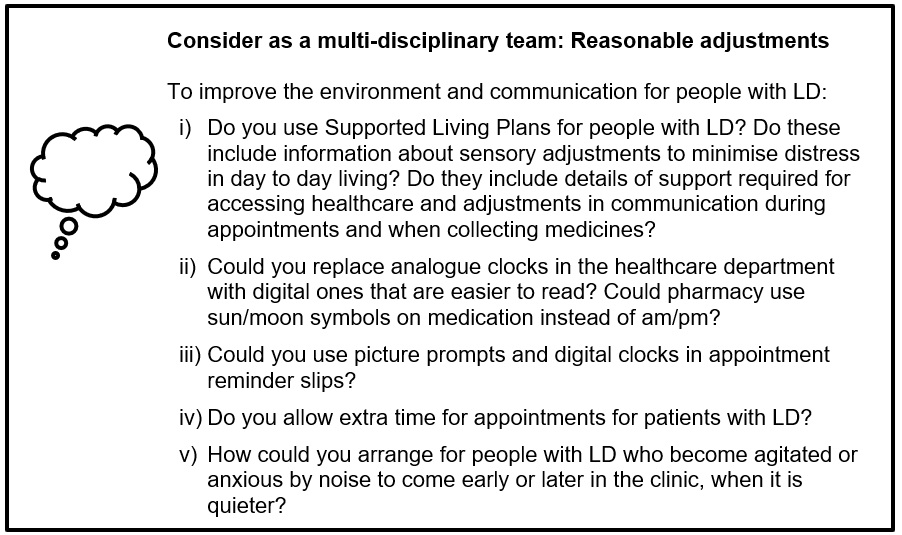
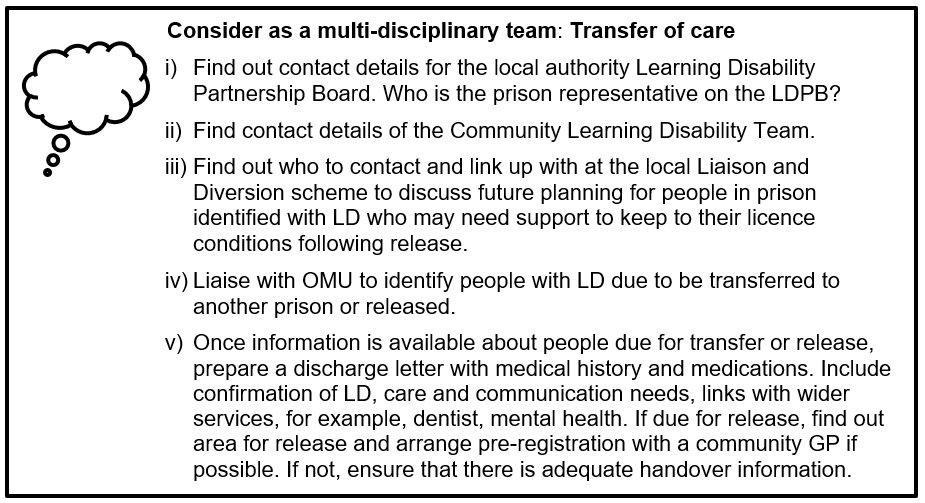
Public Health England Guidance relating to Learning Disabilities
Public Health England has published a collection of guides on reasonable adjustments for people with a learning disability.
